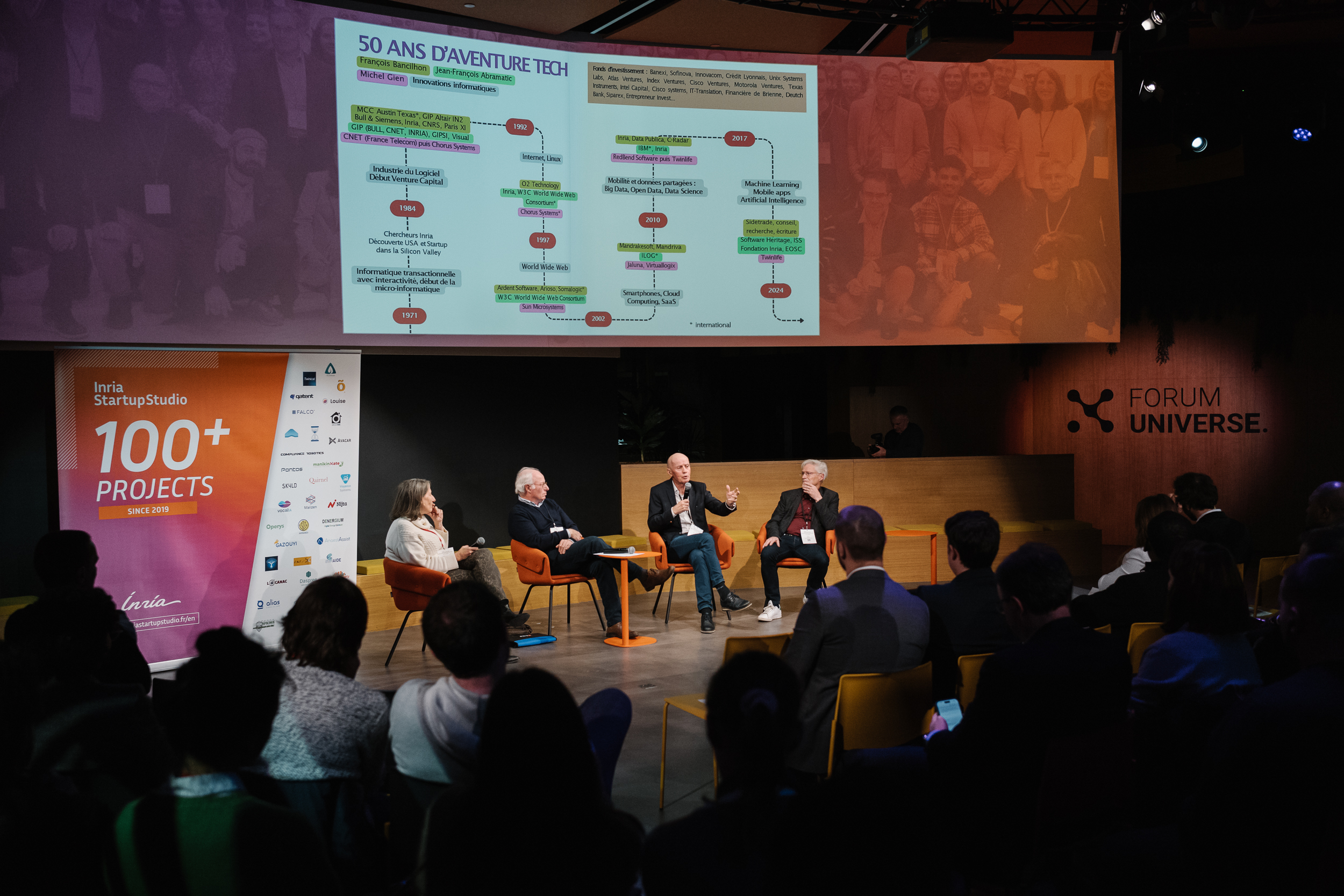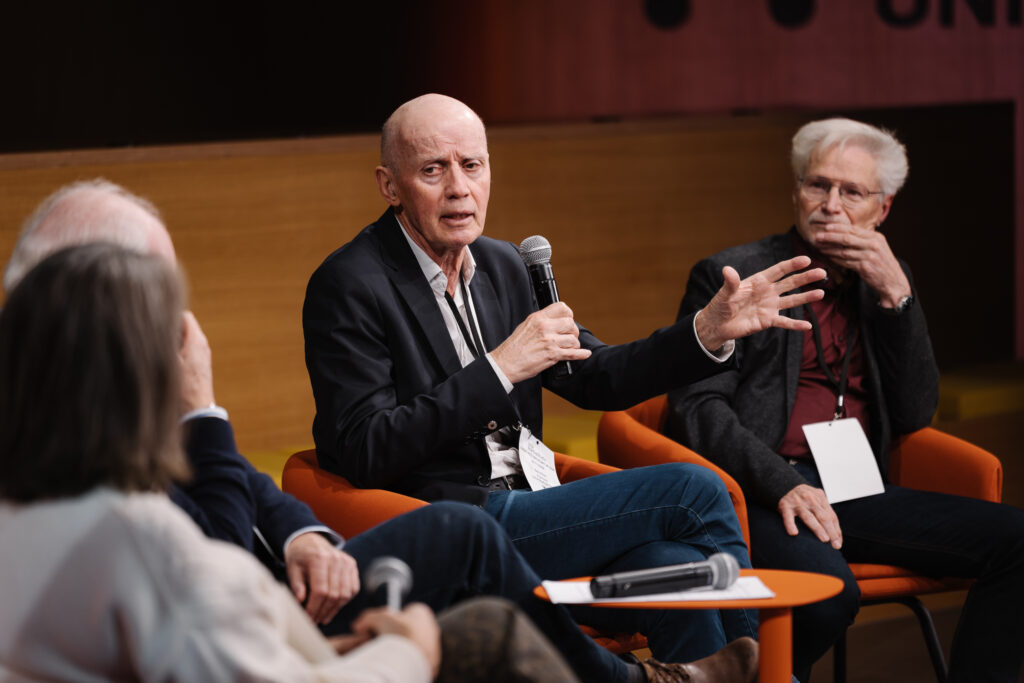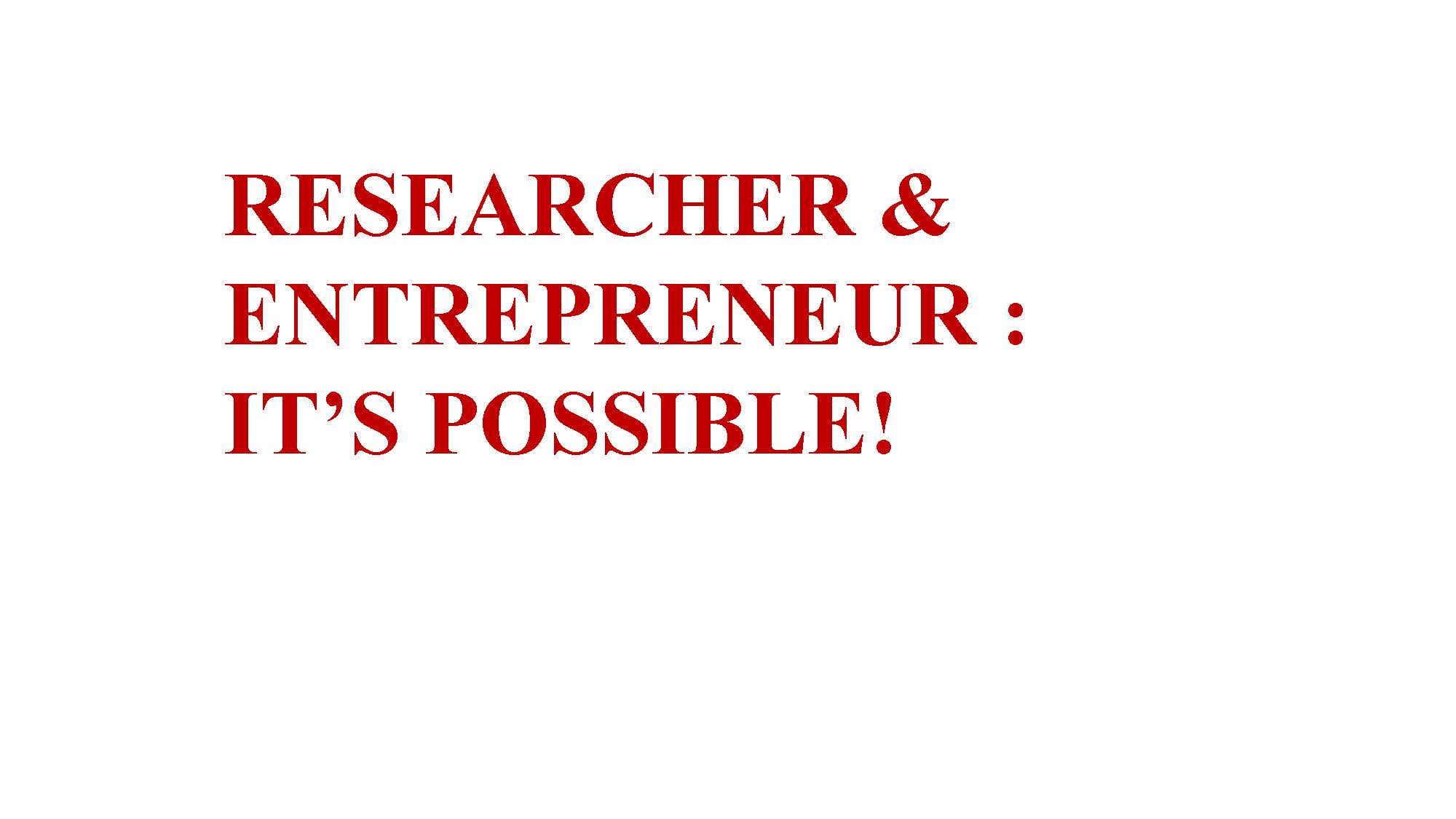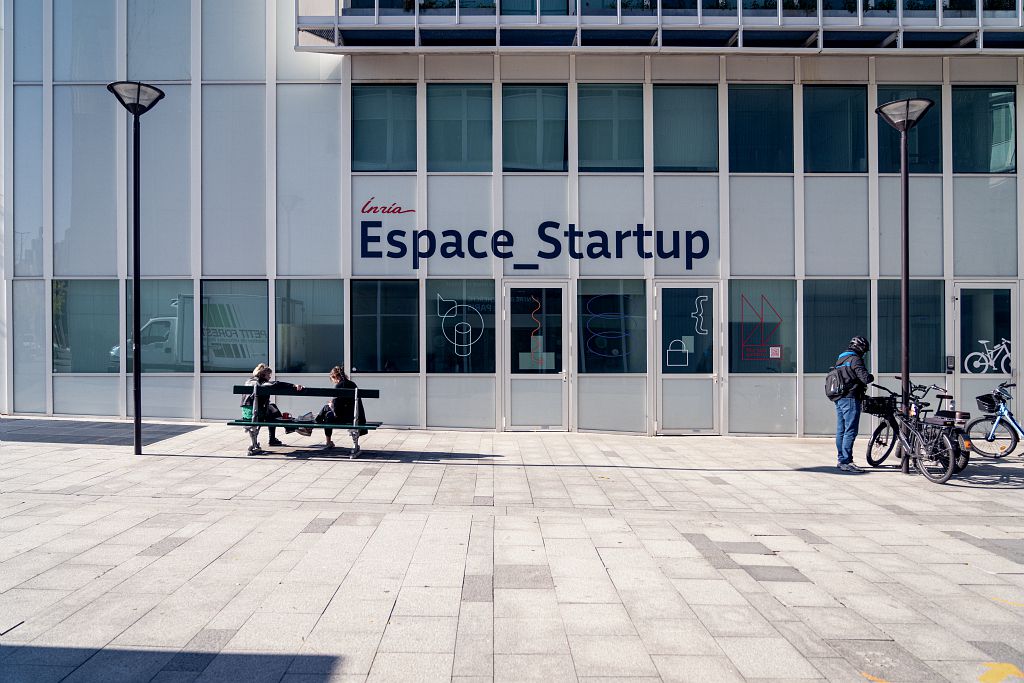
Five tips from tech veterans for young entrepreneurs
For almost half a century, Jean-François Abramatic, François Bancilhon and Michel Gien have been part of every major tech revolution, from the beginnings of microcomputing and venture capital to AI. At the Fête des startups 2024, they look back on their careers, which have been punctuated by innovations, expatriations, takeovers…
For almost half a century, Jean-François Abramatic, François Bancilhon and Michel Gien have been part of every major tech revolution, from the beginnings of microcomputing and venture capital to AI. At the Fête des startups 2024, they look back on their careers, which have been punctuated by innovations, expatriations, takeovers and bankruptcies.
From the first computers to the Internet, then from the Web to mobile and from Big Data to AI… Since the early 1970s, these three former Inria researchers have seen the digital boom, to which they have contributed by launching their startups or joining leading companies in the sector. All three were pioneers in their fields.
Jean-François Abramatic dedicated his thesis to computer image processing, “the deep tech of the time. I worked on the algorithms you use today when you zoom in on a photo, and my thesis focused in particular on how to speed up image processing, whereas back then you had to change buildings to do what a smartphone does in a few seconds today!” He then tried his hand at hardware with GIPSI terminals, before heading the World Wide Web Consortium from 1996 to 2001, then becoming one of IBM’s innovation directors following the takeover of ILOG in 2009.
For his part, François Bancilhon has spent his entire career in database management, a field which, in his words, “has never become a commodity, with many innovations and a great deal of theoretical and practical activity over the last few decades. We’ve gone from SQL to NoSQL, then Big Data, and so on. “All of which has enabled him to support the development of many companies involved until recently in machine learning issues, such as O2 Technologies, Mandriva, C-Radar and Sidetrade.
Lastly, Michel Gien specialized in operating systems, starting out with UNIX, before taking part in the creation of Chorus Systèmes, in order to develop the Chorus OS, and to follow the latter as it was acquired by Sun Microsystems, Red Bend or Harmann. However, he had already left the company to found Twinlife, a mobile operator without a number, when Harmann was acquired by Samsung in 2016.
All three were joined by Sophie Pellat, co-director of Inria Startup Studio. From their testimonials, which we invite you to discover in the video above, here are the top five tips to remember when you’re an entrepreneur or researcher looking to create your own startup.
Beware of VCs
“In the 80s, there were no VCs in Paris. Those who did try their hand at it were, like us, learning how startups worked by observing the United States. They tended to have banker profiles, and were unfamiliar with the ‘risk’ of venture capital”, recalls Michel Gien, who advises us to be wary of VCs: ”And this, even if they are important for financing a company’s development. The fact remains that the best money is your customers’ money. They’re the ones who pay for your products, and who have a vested interest in you remaining competitive to ensure follow-up, whereas the VC will want his money back in the more or less long term, and may no longer share your point of view over time.”
Don’t be afraid of filing for bankruptcy
Jean-François Abramatic, who has spent most of his career between Paris, Rocquencourt, Palo Alto and Boston, quickly adds: “The term ‘venture capital’ clearly shows the difference in approach between France and the United States, where we speak of Venture Capital… On the one hand, adventure, on the other, risk. That says a lot!” says the former president of W3C, who recounts one of his first fund-raisings: ”I had the agreement of two investors. After collecting the cheque from the first, the second informed me that he was abandoning the project, as he had not succeeded in adding value to the company’s R&D… I returned the cheque to the first investor, and two days later I filed for bankruptcy, before ‘scrapping’ the company and setting off on a new two-year adventure.”
Jean-François Abramatic is not the only one to have filed for bankruptcy. François Bancilhon has filed for bankruptcy three times in the course of his career, and approaches the subject with a great deal of distance: “It’s a process, an act of management that you go through and, above all, that you survive. It’s much less painful than having to tell a colleague, who is often a friend, that you’re going to have to lay him off,” he explains, well aware of the difficulties that entrepreneurs faced with such a situation can encounter. “People often look at you the wrong way, but you shouldn’t be afraid of people’s opinions; most don’t even know the difference between Chapters 7 and 11,” he continues, referring to the chapters of bankruptcy law in the USA, which respectively allow a company to be wound up or enter a reorganization process.
“Bankruptcy filings, takeovers, new business launches… In a 50-year career, you get to experience all these situations, many times over!” reminds Jean-François Abramatic, while as Sophie Pellat suggests, our three witnesses have been touched by ‘the entrepreneurial virus’ and have as much advice as anecdotes to share with the researchers and young entrepreneurs in the audience.
Surround yourself with the right people
“Don’t listen to advice from old people over 70”, replied François Bancilhon to Sophie Pellat when she asked him what advice he would give to the public. “But as I’m not above a contradiction, I’d still advise mentoring: when you’re alone at the top, you make mistakes, some of which are avoidable. It’s always a good idea to be accompanied. An opinion shared by Jean-François Abramatic, who regrets not having had “anyone behind him to turn to for support”, when he had to set up his first start-up in 1988. “By way of comparison, the first Silicon Valley start-up, Hewlett-Packard, was founded in 1939,” he recalls, ”and Steve Jobs himself benefited from William Hewlett’s advice in his early days.”
However, our witnesses were able to benefit from the advice of their peers, particularly in the U.S., as in the case of Michel Gien, who had made friends with Robert Metcalfe, founder of 3Com, another pioneer of the Internet and the startup ecosystem on the other side of the Atlantic.
But beyond mentors, the success of an entrepreneurial adventure also depends on the ability to choose the right partners. While Michel Gien has never filed for bankruptcy, he has made several “scrap sales”, with the sole aim of continuing to be able to pay salaries. “What’s important is the team that makes up the company. At Chorus, people agreed to lower their salaries so as not to lay people off. Having a team like that, made up of committed people who share your values and convictions, is an enriching experience every day. But sometimes that wasn’t enough. Everyone was aware of this. Great success is the exception that proves the rule. Quite often, the company just manages to hold on, and when the going gets tough, you have to sell at the minimum price if you want to be able to continue developing your projects, and in hindsight, it’s never serious, just a blip in your journey.”
Don’t do it for the money
All the more so as these “adventures” can turn out to be opportunities, as Michel Gien once again asserts: “You shouldn’t launch a start-up thinking you’re going to become a millionaire. I’ve made more money by getting fired through redundancy plans than by getting bought out! Except once, which enabled me to finally finish my house… And it was by being bought out by a large group that I was able to earn a good salary for a while and contribute, which enables me to have a decent retirement today!”
Be ready to live at 150%
Beyond money, what motivates our panel of entrepreneurs varies. Some are driven by the desire to make their work and their ideas known, even to the best, as Jean-François Abramatic recalls when talking about IBM’s takeover of ILOG and its integration with the 300,000 employees of the “big house”, one of the very few hundred-year-old companies in the digital sector.
Others want to see their products used by as many people as possible, and have an impact on the lives of others. This is one of the reasons why Michel Gien founded Twinlife: “With Christian Jacquemot, we wanted to capitalize on our experience and create a company whose products would be directly usable by our loved ones, and not integrated into a more complex B2B process.”
Finally, there are those who have been hit by the notorious “entrepreneurial bug”, and are looking for an adventure, with all the ups and downs that entails. “There are good sides too, but you certainly have to be ready to live 150% of the time,” says François Bancilhon, evoking the moments of success that are the fruit of teamwork. “During a period that lasted a year and a half, every 1st of the month, I didn’t know if I’d be able to do the payroll. I kept at it, and each time we came up with something. Now that I’m no longer a company director, I regret it every day.”

Publication date: 10/02/2025
Want to get started ?






